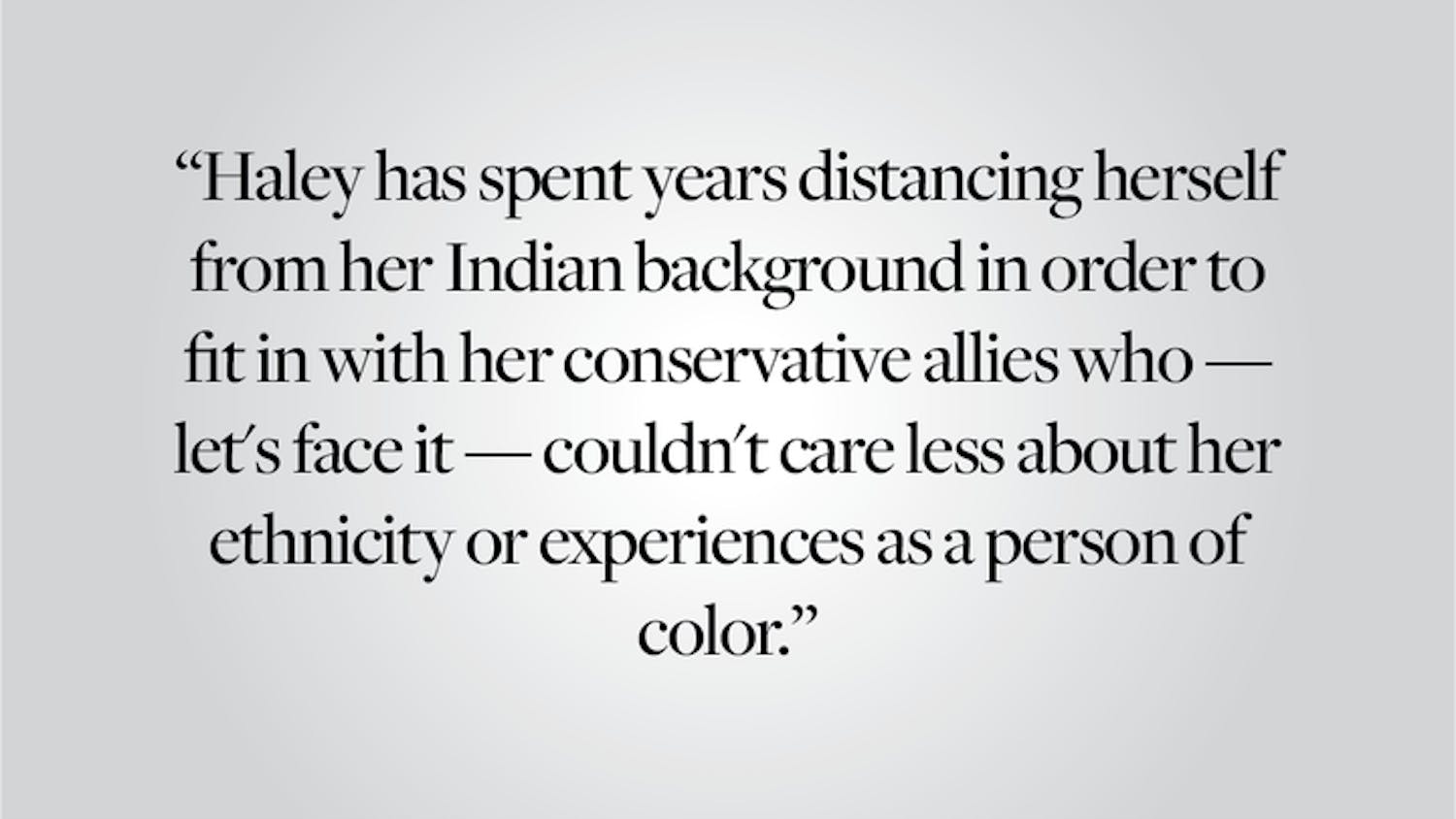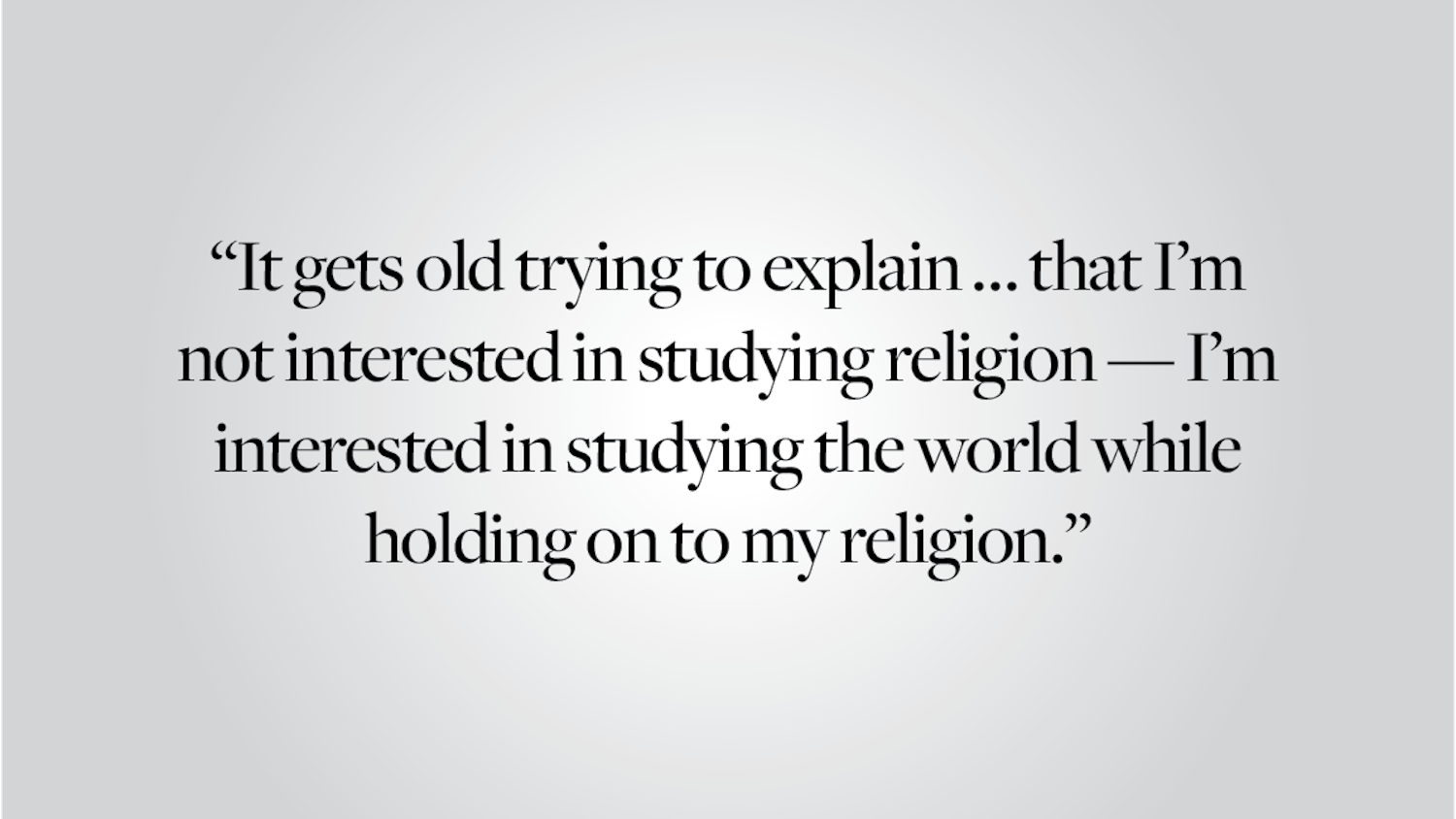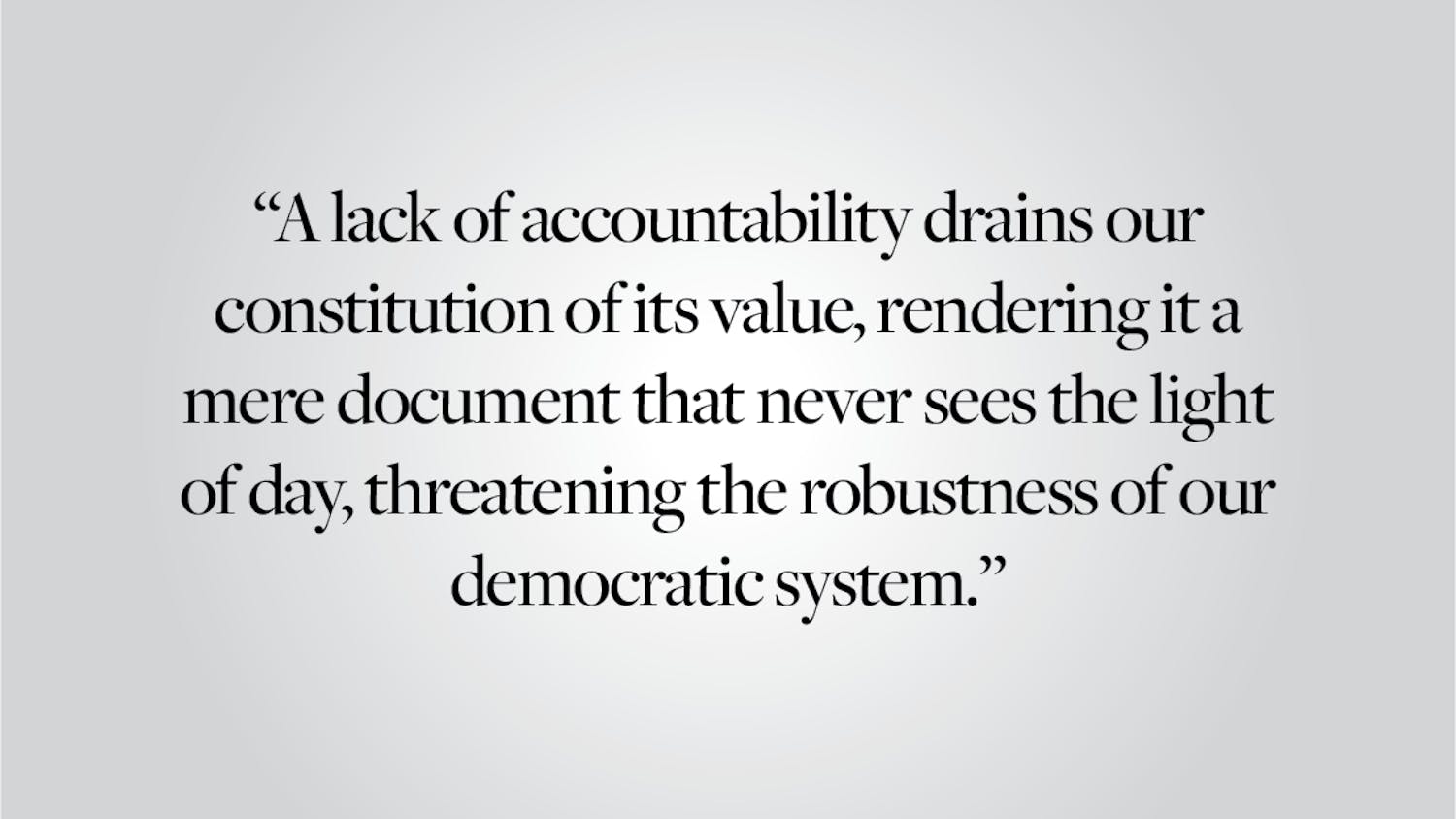Thursday evening, Brown/RISD Hillel hosted an event featuring Oscar-winning actor Michael Douglas and human rights activist and Jewish Agency of Israel Chairman Natan Sharansky, on “Jewish Journeys.” Two Jewish figures, one American and one Israeli, came to tell their stories of self. I was very disappointed to see that “Students for Justice in Palestine” had selected this event — one that was meant not as a political discussion but as a conversation about personal identities — as a target for protest.
SJP activists politicized the event, and the speakers decided to address the issues that protesters had introduced. Douglas, for example, openly criticized Israel’s settlement construction policies and called out members of Israeli Prime Minister Benjamin Netanyahu’s ruling Likud party for positions with which he disagreed, despite SJP’s attempt to portray Douglas’ acting career as the Israeli government’s attempt to “whitewash” Israeli policies. As a Jewish student in the audience, I couldn’t help but worry about the implications of a group on Brown’s campus accusing a non-Israeli Jew (who openly challenges Israeli policies) of carrying out a foreign government’s subversive plots. Is any Jew in the public eye, then, subject to allegations of fifth-column conspiracy?
It is perhaps because of such questions that SJP felt the need to lie about the event when advertising its protest. The members of SJP fortified their claim about Douglas’ secret mission by declaring in no uncertain terms that the event was funded by the Israeli government, which is simply false. Rather, the event was funded by several organizations, some of which receive some funding from the Israeli government, among other sources. SJP’s logic would imply that — because Brown receives funding from the American government — any event hosted by a Brown student organization is bankrolled directly by President Obama’s office.
SJP also slammed the event as a violation of academic freedom, claiming that “American Jews are still not allowed to speak freely regarding Israel within Hillel,” which surprised me. I have had many conversations within Hillel and at Hillel-sponsored events with American Jews who wrestle with their connection to Israel, some of whom openly question Israel’s very existence. Last year, for example, Hillel co-sponsored a talk by Palestine Liberation Organization Ambassador Maen Areikat.
Of course, the idea of activist groups slandering Jews with unpopular political ideologies is nothing new. SJP lied about an event on “Jewish journeys” to suggest that it abridges academic freedom and invites “infringement of the Israeli government upon our campus.” The American government, while obviously on a different scale, used a similarly misleading tactic in the 1940s when it refused to let Jewish refugees fleeing the Holocaust into the country in case they might be communists. Meanwhile, in the Soviet Union, oppression of Jews was justified through trumped-up claims that they were “capitalists” — Sharansky himself was imprisoned for nine years, alongside thousands of other Jews incarcerated or otherwise punished simply for wanting to emigrate.
Aside from SJP’s disturbing choice to protest and politicize an event that was meant to center on Jewish stories of self and not on Israel, it is important to note that the group’s tactics in general are often flawed. The SJP narrative oversimplifies the complex Palestinian-Israeli conflict into a black-and-white conception of Israel and Palestine as two monolithic, static entities, seeking to promote Palestine as a whole over Israel as a whole. At the event, they chanted the classic line: “from the (Jordan) River to the (Mediterranean) Sea, Palestine will be free” — that is to say, there should be a single state of Palestine that stretches over the entirety of what is today Palestine and Israel, and Israel should be obliterated entirely.
Unfortunately, SJP consistently fails to note nuances in both Palestinian and Israeli politics. Many groups in the United States and Europe, by seeking to punish Israel for its policies without engaging in peace negotiations, perhaps unwittingly reinforce the narratives of hawkish Palestinian religious-conservative parties such as Hamas over those of more peace-inclined parties such as Fatah. The latter, although deeply flawed, is willing to negotiate and seeks to establish a secular republic alongside Israel. It is for that reason that Hamas officials have been known to praise the Boycott, Divestment and Sanctions campaign, which SJP tirelessly promotes, whereas Fatah condemns such misguided American and European intervention in Palestinian politics.
At the same time, right-wing Israeli politicians such as Prime Minister Netanyahu craft their narratives around fears that the world is hostile to the Jewish State — movements like SJP help them maintain power at the expense of left-wing Israelis who see peace and Palestinian statehood as high priorities. At Thursday’s event, in fact, delegates from conservative American organizations took footage of the protesters to use in their promotional materials in support of the Israeli political right. SJP, then, strengthens both Palestinian and Israeli hawks over their more dovish rivals, making the prospects for peace and the establishment of an independent State of Palestine ever more distant.
Sadly, those protesting outside the event did not engage in nuanced conversation. At least one of the protesters was inside the room before the event, but instead of staying and hearing another perspective, he chose to distribute leaflets and walk out. Had he and the other protesters joined us inside, they would have heard that, after they politicized the event and forced the conversation to focus on Israel and Palestine, members of the audience expressed a great diversity of opinions. They would have heard fellow students, including leaders of the pro-Israel movement at Brown, voicing their concerns about Jewish Agency policies. They would have heard both speakers, in fact, voice their support for Palestinian statehood and declare that ending the occupation as soon as possible should be a priority. I, for one, am glad to have Hillel as a place to engage so seriously with these topics, to exchange ideas with people who love Israel passionately and are critical of some of the country’s policies, in some cases, and who don’t think Israel should exist at all, in other cases. But unfortunately, the SJP members heard none of this, because they were too busy standing outside and demanding all of the land “from the River to the Sea.”
It’s important that Jews, like every other group on campus, be able to share stories of self without the event being politicized. It’s also important that Jews in this country be allowed to have successful careers without being accused of serving as agents of foreign governments. Despite SJP’s claims about what the speakers believed, neither of them chose to equate anti-Zionism with anti-Semitism, and I agree with them in that the two are certainly distinct.
SJP, however, crosses a line when it protests events on “Jewish journeys.” Readers of this article should see it not only as my attempt to voice the grievances of some Jewish students on this campus, but also as my plea to Students for Justice in Palestine to seriously think through the ways in which they frame their arguments and the arguments that they choose to make. Protesting Jewish events is not a necessary evil on the path to Palestinian liberation. In practice, it undermines the prospects for peace and for Palestinian statehood. In a complex situation like the conflict in Israel and Palestine, it is mutual understanding, and not antagonism, that breeds justice. I hope that Students for Justice in Palestine will take a hard look at what they are trying to accomplish, from the River to the Sea, as they bolster the most hawkish figures in both Palestinian and Israeli politics and as their campaign takes aim at American Jews.
Benjamin Gladstone ’18 writes as an individual, not on behalf of Brown Students for Israel or Hillel.
Please send responses to this opinion to letters@browndailyherald.com and other op-eds to opinions@browndailyherald.com.




